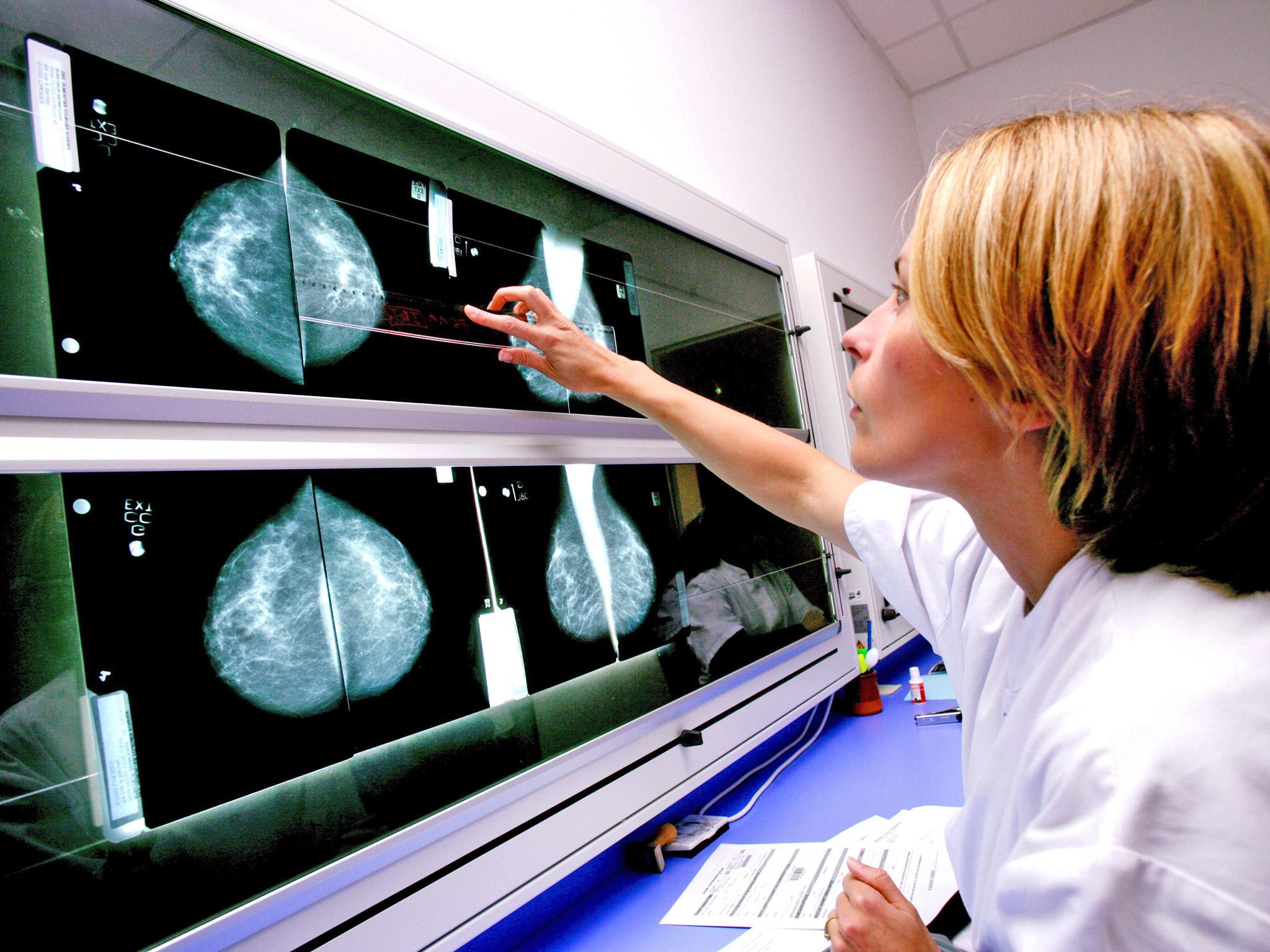New test can identify breast cancer patients at higher risk of relapse
‘The test should be relatively straightforward to bring into standard practice in the NHS,’ says professor

A test is able to identify breast cancer patients who are more at risk of having the disease return, a major new clinical trial has found.
The research, published in The Lancet Oncology, discovered examining how women react to hormone therapy for breast cancer given around the time of surgery could be both an inexpensive and rapid method of forecasting how likely it is for the breast cancer to reappear.
Researchers found a test which looks at how the growth rate of cancer cells altered a fortnight after beginning treatment with hormone therapy could set the mind at ease of women who are likely to do well on usual treatment – which is often hormone therapy post-surgery and radiotherapy.
The test costs roughly £60 per patient - less than 1/20th the cost of genomic tests which can presently be obtained.
Scientists at The Institute of Cancer Research and The Royal Marsden NHS Foundation Trust studied 4,480 women who had early-stage, hormone-positive breast cancer.
The new study, which was funded by Cancer Research UK, demonstrated the advantages of measuring reactions to drugs which curb oestrogen levels which are known as aromatase inhibitors.
Professor Judith Bliss, the report’s co-leader, said: “Our study suggests that many more women with early-stage, hormone-positive breast cancer should be offered treatment with aromatase inhibitors around the time of their operation, as it has the important benefit of also helping us pick out those patients at higher risk of their cancer coming back.
“Instead of more expensive genetic testing, measuring the growth response of cancer cells to aromatase inhibitors could be a low-cost way to pick out those women who are likely to do well on standard treatment, and those who should be considered for clinical trials.
"And with aromatase inhibitors being a well-established treatment, the test should be relatively straightforward to bring into standard practice in the NHS.”
Professor Ian Smith, consultant medical oncologist at The Royal Marsden NHS Foundation Trust, said the trial is the largest of its kind around the world and involved around 4,500 patients in NHS breast units across the country.
He added: “We have shown that giving patients with early breast cancer two weeks of simple endocrine therapy using aromatase inhibitor tablets before surgery allows us to determine what is the most appropriate medical treatment after surgery for each individual patient.
"In particular, it helps us identify which patients could avoid chemotherapy with all its unpleasant toxicities. The test is much cheaper and easier than current genomic tests, and we believe it should become part of the standard treatment for early breast cancer.”
There are thought to be roughly 35,000 people who currently have secondary breast cancer in the country - with breast cancer being the most prevalent type of cancer in the UK.
Professor Arnie Purushotham, Cancer Research UK’s senior clinical adviser, said: “Sadly, breast cancer can return for some women, so a new way to help predict if their cancer will return means doctors could monitor these patients more closely – catching any sign of cancer as early as possible is crucial for improving survival.
“This research could also have implications for how doctors decide to treat early-stage, hormone-positive breast cancer – potentially triaging women depending on the risk of their cancer coming back.”
It comes after The Independent recently reported almost 1 million women living in the UK have not been able to attend breast cancer screening appointments as a result of the coronavirus crisis.
Breast Cancer Now forecasts around 8,600 of the women ensnared in the backlog could have been living with breast cancer which has gone unidentified – with their diagnosis postponed due to the health emergency overwhelming NHS resources.
Join our commenting forum
Join thought-provoking conversations, follow other Independent readers and see their replies
Comments

Bookmark popover
Removed from bookmarks